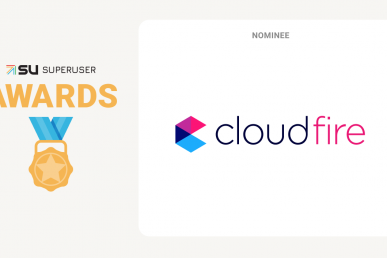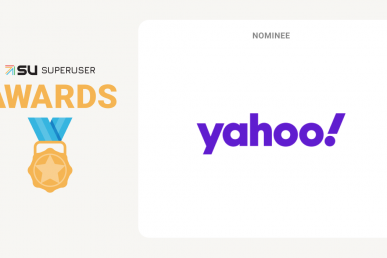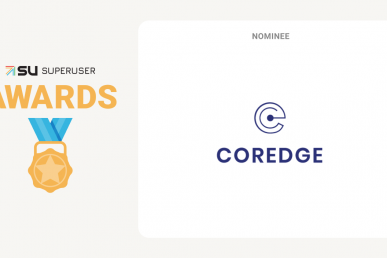Who do you think should win the 2021 Superuser Awards?
Since the awards were launched at the Paris Summit in 2014, the OpenInfra Foundation has hosted the annual Superuser Awards to recognize organizations that have used open infrastructure to improve their business while contributing back to the community.
This year, the Superuser Awards winner will be announced at the OpenInfra Live: Keynotes, November 17 – 18th! This will be the best opportunity for the global community to get together this year to hear about all things OpenInfra. Registration is free and is now live, so sign up today and join us for Keynotes!
Check out highlights from the 11 nominees and support them by sharing them with your audience on Twitter, and the full application of each nominee will be published in the upcoming weeks. Stay tuned!
Catalyst Cloud
Founded in 2014, Catalyst Cloud always following upstream-first, which means no matter it’s a small bug fix or a large feature request. They will upstream the code back to open source community and cherrypick back to their internal repos. They have kept contributing back to open source community since 2014 and never stopped.
To innovate with open infrastructure, they have created three very cool services around the OpenStack community and have contributed them back to the OpenStack community, that includes Distil (a billing service), Adjutant (admin task workflow service) and Qinling (Function as a service). And they also contributed quite a lot of critical features to different services.
Cloud Team at Bloomberg
Bloomberg’s OpenStack-based private cloud (known as Bloomberg Cloud Compute, or BCC) has become the largest Compute platform in Bloomberg’s data centers. BCC delivers an open Infrastructure as a Service (IaaS) to Bloomberg’s community of more than 6,500 software engineers. As a first for them, it supports an automated end-to-end process for our application teams to get their machines provisioned, automatically built, and online without human intervention or tickets being issued. This has helped us achieve much higher machine utilization in our data centers (4x or more).
They have deployed approximately 120k physical OpenStack (Ussuri/Ceph Octopus/Neutron/Calico) cores (and growing) over several thousand hosts (each typically with 1.5+ TB RAM) in our modern clusters spread across 4 sites. Each also has multiple PB of NVME-backed Ceph storage.
Cloudfire
Open Infrastructure is the core component of its business. It helps them to configure and be able to provide cloud IaaS and other SaaS products as White Labelled infrastructure.
They are currently using OpenStack, Ceph, Kubernetes, Ubuntu, Prometheus, and other K8S open source projects in its open infrastructure environment.
Component Soft
With open infrastructure technologies, where OpenStack was their first huge success followed by Kubernetes, they could develop their own courseware (course books and remote lab environments) which are strongly aligned to official and acclaimed exams, such as Certified OpenStack Administrator (COA).
Again, the best metric of their usage of OpenInfra technologies in their case is the number of students instructed from late 2014, after delivering their first OpenStack trainings. Since that time till the end of 2021, they have been educating around 3,700 people for OpenStack, Kubernetes, other cloud-native technologies, Ceph and Ansible.
Coredge
Teams at Coredge are heavily reliant on OpenInfra project – OpenStack for deploying and managing customer cloud and using it to build a solution that addresses requirements in multiple cluster environment along with Kubernetes.
Their team has contributed to multiple open-source projects from different communities. They are contributing to the below open source projects for the last 10 years. They were active in attending meetups, providing feedback, code contribution, and discussion on blueprints.
Over 500 users of their IaaS solutions run over 10,000 OpenStack cores in production. They have also implemented multiple Kubernetes clusters on top of the IaaS layer.
InMotion Hosting
Open Infrastructure has transformed their business by automating their infrastructure and producing new revenue streams through their Flex Metal Cloud product. Rapid prototyping and research using OpenStack, enabled InMotion Hosting to provision over 500 clouds on top of their hardware pool since January 2021.
Their platform focuses on providing small, renewable OpenStack private clouds on-demand to users who like OpenStack but cannot deploy OpenStack on their own. Since January 2021, they have provisioned and recycled over 500 OpenStack private clouds
OneQode
Building their cloud platform on OpenStack has given them a host of benefits, the most important of which is the reduced friction for new customers, as OpenStack tooling is readily available to enable fast uptake of their cloud.
While they are still new to the community, they’ve joined the Open Infrastructure Foundation to provide tangible support, and they’re excited to expand their contribution as they grow.
Currently, they are in the process of deployment with the intention of having OpenStack deployments across Sydney, Brisbane, Guam, Los Angeles, Hong Kong, Singapore, and Manila.
ORock Technologies
ORock is highly competitive with much larger cloud companies because it has the support of talented OpenStack contributors. ORock offers key cloud services to customers at impressive delivery speeds. In the last year, they successfully migrated from Rocky to Wallaby, and their team is testing Xena in staging.
Since 2017, the ORock team has actively participated in community events, communications, and most importantly, provided significant feedback on features, bugs, and submitted code to projects such as Nova & Cinderclient.
ORock is committed to providing as many open-source components to their customers. They continue to update their roadmap to expand their service offerings.
OSISM GmbH
They have been doing open source as a company since the beginning. Christian has been working on OpenStack for over 10 years. OpenStack is clearly their focus when working on open source and that’s where they invest most of their time. They also make all parts of their product (OSISM) available as open source.
They were able to grow from 1 employee to almost 10 employees by now. That’s great and it’s nice to create jobs and allow people to work on Open Source software.
The R&D, Operations and Engineering Teams of Binero Group AB
Their OpenStack journey started back in around 2016 as a streamlined VPS service which later led to a deployment that handled the workload of their large scale shared hosting environment. With time this improved development cycles and removed infrastructure related obstacles for their dev teams. Mainly it improved their internal processes and made them “think differently” in terms of testing, automation, metrics/monitoring and deployment procedures.
They are almost exclusively utilising open source technologies in their work and platforms, and from the OpenInfra project portfolio the one standing out would in their case be OpenStack, CEPH and Zuul.
Yahoo! Datacenter Infrastructure Cloud Engineering (DICE)
They operate some of the largest on-prem environments in the world and depend on Open Infrastructure to power our data centers. Yahoo has long been a strong advocate of open source projects. Hadoop, Apache Trafficserver, Athenz, etc started as internal Yahoo tools which were open sourced and given to the world.
In terms of OpenStack, they have contributed tens of thousands of lines of code, as well as given feedback in technical sessions, presentations sharing data, etc. In general, they share openly and eagerly with the community.
Yahoo has around 4 million OpenStack cores across thousands of compute nodes and hundreds of thousands of physical servers in ~18 clusters. The company also has a significant Kubernetes deployment that runs a large percentage of our on-prem workloads.
Previous Superuser Awards winners include Baidu, AT&T, City Network, CERN, China Mobile Network Cloud Integration Team, Comcast, NTT Group, the Tencent TStack Team, and VEXXHOST.
- Exploring the Open Infrastructure Blueprint: Huawei Dual Engine - September 25, 2024
- Open Infrastructure Blueprint: Atmosphere Deep Dive - September 18, 2024
- Datacomm’s Success Story: Launching A New Data Center Seamlessly With FishOS - September 12, 2024

)











